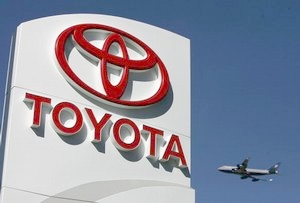It will take the Baltic states some 30 to 50 years to catch up to living standards in current European Union states
Published:
1 July 2003 y., Tuesday
It will take the Baltic states some 30 to 50 years to catch up to living standards in current European Union states, according to a study released this week by the Economist Intelligence Unit. Among Eastern European countries, it said that Estonia and Slovenia would close the economic gap the fastest, roughly reaching EU living standards in 31 years; it said it would take Lithuania 53 years and Latvia 58. Romania will take the longest time to catch up, some 80 years, the London-based research group estimated.
The calculations were made on the basis of relatively optimistic growth scenarios, with annual GDP growth in the Baltics states staying at or above 4 percent for the next several decades. But the report warned that it could take the countries even longer to match standards of wealth farther West if government leaders make the wrong policy choices.
“The true impact depends not on the mere fact of adding countries to the EU club, but on the interplay between policy and the potential that enlargement creates,” said Daniel Franklin, Editorial Director of the Economist Intelligence Unit. Economic performance will vary, and with it the pattern of growth across the EU, but intensified competition in an enlarged single market generally will encourage policies that make markets more open and flexible, the report said.
Šaltinis:
balticsww.com
Copying, publishing, announcing any information from the News.lt portal without written permission of News.lt editorial office is prohibited.
The most popular articles
 The European Institute for Gender Equality (EIGE) will, for the first time, open its doors in Vilnius on 16 December 2009.
more »
The European Institute for Gender Equality (EIGE) will, for the first time, open its doors in Vilnius on 16 December 2009.
more »
 The European Commission has today launched a public consultation on the future of air passenger Rights and released a top 12 list of recommendations to guarantee travellers a safe and problem-free journey this Christmas.
more »
The European Commission has today launched a public consultation on the future of air passenger Rights and released a top 12 list of recommendations to guarantee travellers a safe and problem-free journey this Christmas.
more »
 Japan's Toyota Motor announced that it will begin selling "plug-in" hybrid cars in mass volumes in two years' time.
more »
Japan's Toyota Motor announced that it will begin selling "plug-in" hybrid cars in mass volumes in two years' time.
more »
 The first results of the latest Eurobarometer survey reveal that for Europeans unemployment is the most important issue facing their own country, while concerns about the economic situation have lessened slightly.
more »
The first results of the latest Eurobarometer survey reveal that for Europeans unemployment is the most important issue facing their own country, while concerns about the economic situation have lessened slightly.
more »
 The Human Rights Day focuses on non-discrimination with the motto “Embrace diversity, end discrimination”.
more »
The Human Rights Day focuses on non-discrimination with the motto “Embrace diversity, end discrimination”.
more »
 With the season‘s holidays approaching DnB NORD Bankas issued the first gift card in Lithuania that allows the card holder to pay for the presents they enjoy in any shopping, entertainment or catering place where Maestro payment cards are accepted.
more »
With the season‘s holidays approaching DnB NORD Bankas issued the first gift card in Lithuania that allows the card holder to pay for the presents they enjoy in any shopping, entertainment or catering place where Maestro payment cards are accepted.
more »
 Australian journalist Nigel Brennan was on his way to a camp in Somalia in August last year, to highlight the plight of the country's refugees, when he and his colleague, Amanda Lindhout were kidnapped by gunmen.
more »
Australian journalist Nigel Brennan was on his way to a camp in Somalia in August last year, to highlight the plight of the country's refugees, when he and his colleague, Amanda Lindhout were kidnapped by gunmen.
more »
 Corruption remains an obstacle to development and threatens economic recovery. No country in the world is immune to corruption and that also applies to each of the 27 EU Member States.
more »
Corruption remains an obstacle to development and threatens economic recovery. No country in the world is immune to corruption and that also applies to each of the 27 EU Member States.
more »
 People across Europe should be encouraged to volunteer more to help themselves and the wider community, MEPs said in a resolution on 26 November.
more »
People across Europe should be encouraged to volunteer more to help themselves and the wider community, MEPs said in a resolution on 26 November.
more »
 he heat is on for the UN's most senior climate official. Yvo de Boer , executive secretary of the United Nations Framework Convention on Climate Change, is optimistic the climate summit will produce a signed and seal deal.
more »
he heat is on for the UN's most senior climate official. Yvo de Boer , executive secretary of the United Nations Framework Convention on Climate Change, is optimistic the climate summit will produce a signed and seal deal.
more »